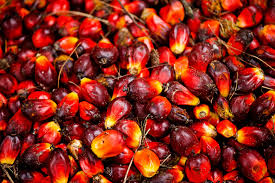News
Malaysia takes to active information campaign within EU on palm oil
By Manik Mehta
BERLIN, Aug 29 -- Malaysia is going on the offensive to inform the European Union (EU) about their palm oil policy, and also prevent the EU from taking what is being portrayed as a “propensity towards protectionism”.
Germany, Europe’s strongest economy, takes a softer approach in the palm oil issue among EU members, particularly in Southern Europe with a strong cluster of suppliers of edible oil.
The phasing out of the use of palm oil as bio-fuel by 2030 in the EU is a challenge facing Indonesia and Malaysia, the two biggest producers.
“The export of palm oil is important for Malaysia’s economy. We endeavour to inform and update not only our German friends but also other Europeans on the efforts we are undertaking to address concerns on palm-oil related issues to achieve a ‘win-win’ situation for all parties involved.
“The Malaysian government will continue to engage and have a dialogue in this regard with various institutions in the EU,” Datin Sarah Nava Rani Albakri Devadason, Malaysia’s ambassador to Germany, told Bernama.
Malaysia has also raised, and is going to raise, its concerns on the so-called phasing out of Indirect Land Use Change (ILUC) at WTO meetings such as the Committees on Technical Barriers to Trade (TBT), Trade and Environment (CTE) as well as the Council for Trade in Goods (GTG) and through the organisation Friends of Palm Oil.
Indonesian President Joko Widodo, along with Malaysian Prime Minister Tun Dr Mahathir Mohamad, had both written some months ago to the European Union to resolve the issue of palm oil. Both leaders had voiced their concern over the treatment of palm oil by the European Commission, which had decided a few months back that deforestation of the rainforests in Southeast Asia for palm plantations disqualified the oil as source of sustainable fuel.
Some ASEAN member countries cannot help suspecting that the EU decision was due to growing protectionism in the EU rather than a scientifically-based decision. Protectionism is the word that seems to unnerve many Europeans, considering that European envoys based in ASEAN capitals have been pushing for free trade with the ASEAN group.
Should the EU persist with its opposition to palm oil-based bio-fuel, German businesses dealing with the ASEAN region fear, there could be repercussions for European exports and businesses as well, affecting ongoing trade negotiations, supply contacts and key imports from the EU.
The aircraft-manufacturing company Airbus, which has been rubbing its hands in glee over the prospect of getting orders for A-400-M military jets, could find itself sidelined, many industry insiders feel. A representative of a German industrial company told Bernama on the condition of anonymity that EU decisions could simply “drive the Indonesians and Malaysians into China’s embrace”.
Echoing sentiments prevalent in both Indonesia and Malaysia, German company representatives privately say that the lobby of the French rapeseed oil cultivators and soya farmers in America was driving anti palm-oil sentiments in the West.
The affected palm oil supplying nations in ASEAN could also, of course, take the issue of palm oil to the World Trade Organisation (WTO).
There is a compelling reason for ASEAN to take this step, considering that more than 13 million people in Indonesia and Malaysia are directly dependent on palm oil as an important source of livelihood. Thus, the issue of palm oil acquires national importance for the affected members of the ASEAN group.
Meanwhile, Malaysian officials have been reinforcing their commitment to producing sustainable palm oil, meeting “the strictest standards of sustainability required by the EU and the world”.
They hope that Malaysian Sustainable Palm Oil (MSPO) certified palm oil will continue to be “the palm oil of choice” for European consumers and buyers.
According to Sarah Nava, Malaysia is also collaborating with International & Carbon Certification (ISCC) towards strengthening MSPO principles and criteria, in line with globally accepted practices on sustainability. Currently, Malaysian biofuels exported to the EU are fully certified by the ISCC.
Malaysia is, nevertheless, concerned about the new ILUC requirement and criteria, and the methods used to calculate emissions from ILUC which are not fully endorsed by a majority of experts, and which may be inaccurate or inconsistent.
-- BERNAMA
Other News
Sarawak Lepasi Sasaran Kapasiti Gabungan Tenaga Boleh Baharu Tahun Ini - Abang Johari

Oleh Nur Ashikin Abdul Aziz
SINGAPURA, 21 Okt (Bernama) -- Sarawak mencapai 62 peratus sasaran campuran kapasiti tenaga boleh baharu (TBB) tahun ini, melepasi sasaran 60 peratus yang digariskan dalam Strategi Pembangunan Pasca COVID-19 (PCDS) 2030.
Sarawak Pacu Pertumbuhan Tenaga Boleh Diperbaharui Untuk Manfaat ASEAN - Premier

SINGAPURA, 21 Okt (Bernama) -- Sarawak komited menyokong peralihan tenaga boleh diperbaharui di Asia Tenggara dengan memanfaatkan potensinya sebagai "Bateri ASEAN," yang akan membekalkan tenaga bersih menerusi sambungan Grid Kuasa Borneo dan ASEAN.
Belanjawan 2025 Percepat Peralihan Kepada Tenaga Bersih - Solarvest

KUALA LUMPUR, 19 Okt (Bernama) -- Belanjawan 2025 merupakan satu langkah ke arah mempercepat peralihan kepada tenaga bersih di Malaysia, kata Solarvest Holdings Bhd.
© 2025 BERNAMA. All Rights Reserved.
Disclaimer | Privacy Policy | Security Policy This material may not be published, broadcast,
rewritten or redistributed in any form except with the prior written permission of BERNAMA.
Contact us :
General [ +603-2693 9933, helpdesk@bernama.com ]
Product/Service Enquiries [ +603-2050 4466, digitalsales@bernama.com ]
